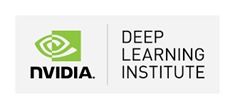
Continuing Education Center
Artificial Intelligence (AI)
Level 1- Introduction to AI


Course Overview:
- This track targets persons who want to become Artificial Intelligence engineers, and data analytic Engineers.
- This comprehensive AI course provides a strong foundation in Python programming, mathematics, machine learning (ML), and deep learning (DL), equipping students with essential skills for AI-driven industries. With AI transforming sectors like healthcare, finance, robotics, and automation, mastering these fundamentals is critical for future-proofing careers in data science, AI development, and research.
- Through hands-on projects (using NumPy, Pandas, TensorFlow, and scikit-learn), students will learn to preprocess data, build ML models, implement neural networks, and deploy AI solutions—bridging the gap between theory and real-world applications.
Learning Outcomes:
By the end of this course, students will be able to:
- Master Python for AI– Use NumPy, Pandas, and Matplotlib for data manipulation and visualization.
- Apply Math & Stats in AI– Leverage linear algebra, probability, and calculus for ML model development.
- Preprocess & Analyze Data– Handle missing data, normalize datasets, and apply feature engineering.
- Build & Train ML Models– Implement KNN, SVM, Decision Trees, Neural Networks, and Clustering (K-Means).
- Evaluate Model Performance – Measure accuracy using MSE, RMSE, precision, recall, and F1-score.
- Develop Deep Learning Models– Construct CNNs, RNNs, and GANs using TensorFlow.
- Deploy AI Solutions– Work with AI platforms (MindSpore, Atlas) for real-world applications.
Prerequisites
- Strong knowledge of Mathematics.
- Good command over programming languages.
- Good Analytical Skills.
- Ability to understand complex algorithms.
- Basic knowledge of Statistics and modeling.
Target Certification:
- The participant who will pass the course exam will obtains Certificate from MIU.
- Upon completion of the program, trainees will receive an HCIA-AI certificate, validating their knowledge of Artificial Intelligence from Huawei Academy
- nvidia dli certificate fundamentals of deep learning
Who Should Attend
- Students, graduates or professionals from any field (tech or non-tech) who want to understand or apply AI in their careers or research.
Estimated Time to Completion: 100 hours
| Housr/Day | No. of days / week | Total no. of days |
| 6 Hours /day | 4 days/week | 17 Days |
Contents:
- Programming Background (18)
- Python Programming Language.
- NumPy (Numerical Python Library).
- Pandas (Python Text and Files Handling Library).
- Math and Stat Background (21)
- Basics of Linear Algebra (Vectors, determinants, and Matrices).
- Basics of Probability (Mean, Variance, Covariance, Correlation, Conditional Probabilities).
- Basics of Statistics (Normal Distribution 1-D and N-D).
- Basic of Calculus (Differentiation and Physical meaning of gradient).
- Data Preprocessing (Handling Missed Data, Data Statistics, Labeling Categories, One Hot Labeling, Data Splitting, Data Normalization, Data Visualization, Import from CSV, Export Data files).
- Assignments:
- Missing Data Handling.
- Data Visualization Using MatPlot Python Library.
- Basic Course in Machine Learning (ML) (33hrs)
- ML Essentials.
- Introduction to Machine Learning (ML vs Rule Based).
- Classification vs Regression in ML.
- Feature Extraction and features engineering.
- Dimensionality Reduction (Principle Component Analysis).
- Feature Selection Techniques.
- Introduction to Clustering Techniques (Unsupervised learning).
- Performance Measures for ML Systems (classification metrics (Accuracy, Precision, Recall, F1 Score,).) and Errors (Mean Square Error , Root Mean Square Error , Mean Absolute percent errors )
- Basic Techniques in Machine Learning
- K-Nearest Neighbors (KNN).
- Linear Regression.
- Logistic Regression.
- Linear Classification Using Minimum Sum Squared Error.
- Decision Trees.
- Naive Bayes Classifier.
- Support Vector Machine (SVM).
- Neural Networks (NN).
- K-Means Clustering Algorithm.
- Assignments and Practices on ML
- (Used Data sets are IRIS data set and MNIST Dataset).
- KNN Classifier (IRIS Data Set).
- Linear Regression (1-D, 2-D) for any function with additional Random Noise.
- Linear Classification using Minimum Sum squared Error.
- Linear Classification using Iterative Algorithm.
- Classification using Decision Tree.
- Numeral Classification using SVM.
- Build and Train Complete Neural Network from scratch.
- Basics of Deep Learning (18hrs)
- Deep neural network development
- Activation function
- Optimization methods
- Optimizer
- Methods to prevent overfitting
- Deep learning Implementation based on TensorFlow
- Convolutional neural network (CNN)
- Recurrent neural network (RNN)
- Generative adversarial network (GAN)
- AI Products and AI Applications (6hrs)
- Deep Learning Open-Source Framework MindSpore
- AI Computing Platform Atlas
- AI Development Platform for Smart Devices
- Enterprise smart Application Platform
- Workshop: Fundamentals of Deep Learning (Nvidia DLI)- 6 hours.
Recommended Next Course:
- Deep Learning
Fees : 5000 LE
Level 2- Deep Learning
Course Overview:
This comprehensive Deep Learning course equips students with cutting-edge skills in Computer Vision (CV) and Natural Language Processing (NLP), two of the most in-demand domains in AI. With industries rapidly adopting AI for automation, healthcare, surveillance, chatbots, and more, mastering deep learning techniques is essential for career growth in data science, AI research, and software development.
Through hands-on projects using Keras, TensorFlow, and PyTorch, students will implement CNNs, YOLO, ResNet, Transformers, LSTMs, and Attention Models—preparing them for real-world challenges in object detection, sentiment analysis, automated text processing, and more.
Learning Outcomes:
By the end of this course, students will be able to:
- Build and train CNN models for image classification, object detection (YOLO), and face verification (Siamese Networks).
- Implement advanced NLP techniques like word embeddings, RNNs, LSTMs, and Transformer models for text processing.
- Fine-tune deep learning models using hyperparameter optimization for better accuracy.
- Deploy pre-trained models (VGG, ResNet, YOLO, BERT) for real-world applications.
- Develop industry-relevant projects such as emotion recognition, document classification, and automated object localization.
Prerequisites
- Strong knowledge of Mathematics.
- Good command over programming languages.
- Good Analytical Skills.
- Ability to understand complex algorithms.
- Basic knowledge of Statistics and modeling.
Target Certification:
- The participant who will pass the course exam will obtain a certificate from MIU.
Who Should Attend
- Students, graduates or professionals from any field (tech or non-tech) who want to advance their AI capabilities in their careers or research.
Estimated Time to Completion: 96 hours
| Housr/Day | No. of days / week | Total no. of days |
| 6 Hours/day | 4 days/week | 16 Days |
Contents:
- Basics of Deep Learning (Computer vision domain) (48hrs)
- Convolutional Neural Network CNN (Basic Concepts).
- Implementation of CNN using KERAS.
- Common CNN Network Architectures (AlexNet, LeNet, VGGNet,…).
- Inception Network.
- Residual Network (ResNet).
- Object Classification and Localization using CNN.
- Anchor Points Detection using CNN.
- YOLO Network for Object Detection, Localization and Recognition.
- Siamese Network and Face Verification.
- Auto Encoders (AE).
- Application of Computer Vision Using Deep Learning
- Emotions classification.
- Numerals Classification using CNN.
- Objects Localization and Classification using CNN.
- Using Pretrained YOLO Model in classification.
- Basics of Deep Learning (Natural Language Processing domain) (48hrs)
- Natural Language Processing NLP (Basic Concepts).
- Preprocessing of Text for NLP.
- Word Embedding Techniques.
- N-Grams.
- Recurrent Neural Network (RNN) and (GRU).
- Long-Short Term Memory (LSTM).
- NLP Applications using RNN and LSTM.
- Optimized hyperparameter of Deep Learning model by different techniques
- Attention Models.
- NLP Transformers.
- Self-paced course: Introduction to Transformer-Based Natural Language Processing
- Self-paced course: Deploying a Model for Inference at Production Scale.
- Self-paced course: Building Real-Time Video AI Applications
Recommended Next Course:
- AI in Healthcare, Finance, or Cybersecurity

 Top Menu
Top Menu